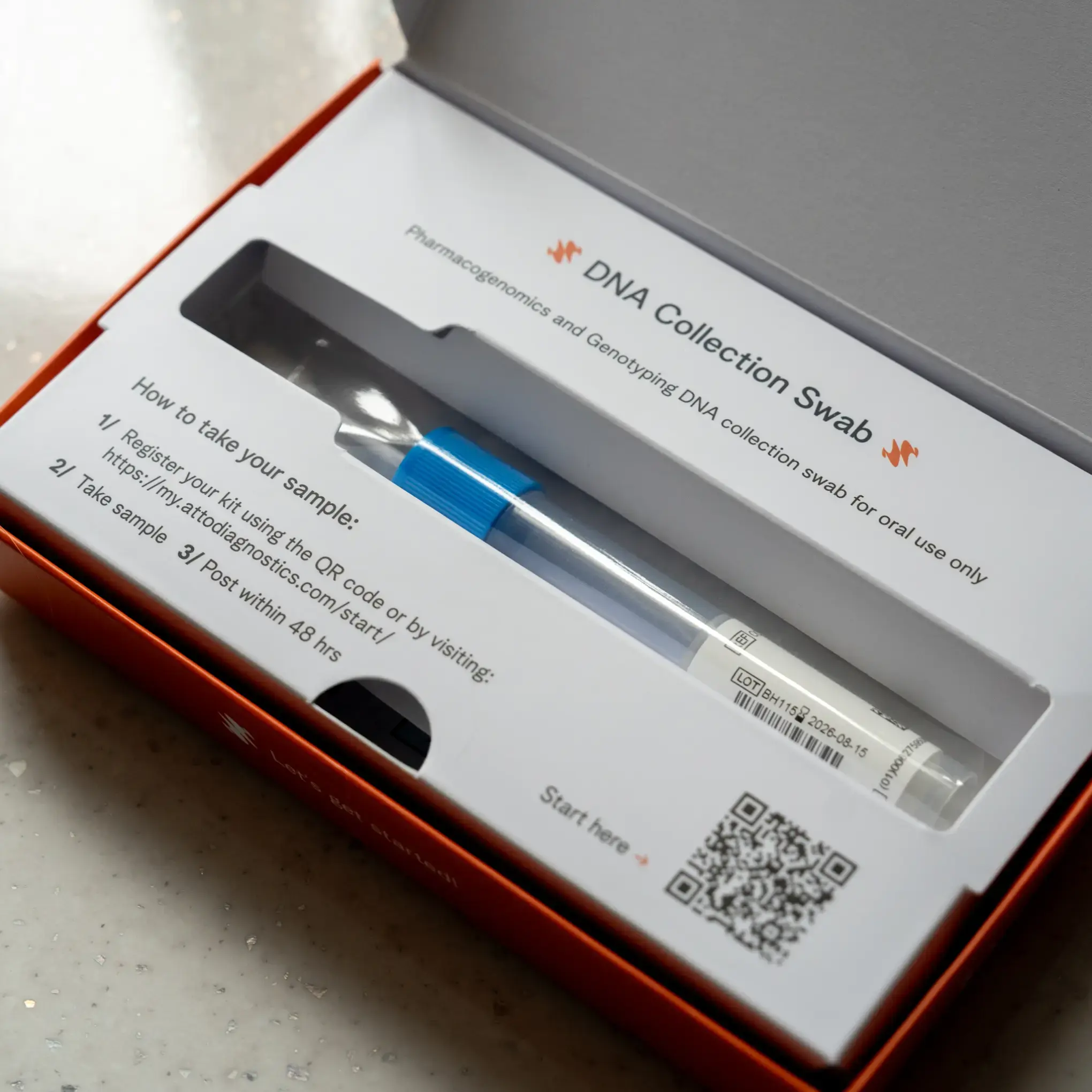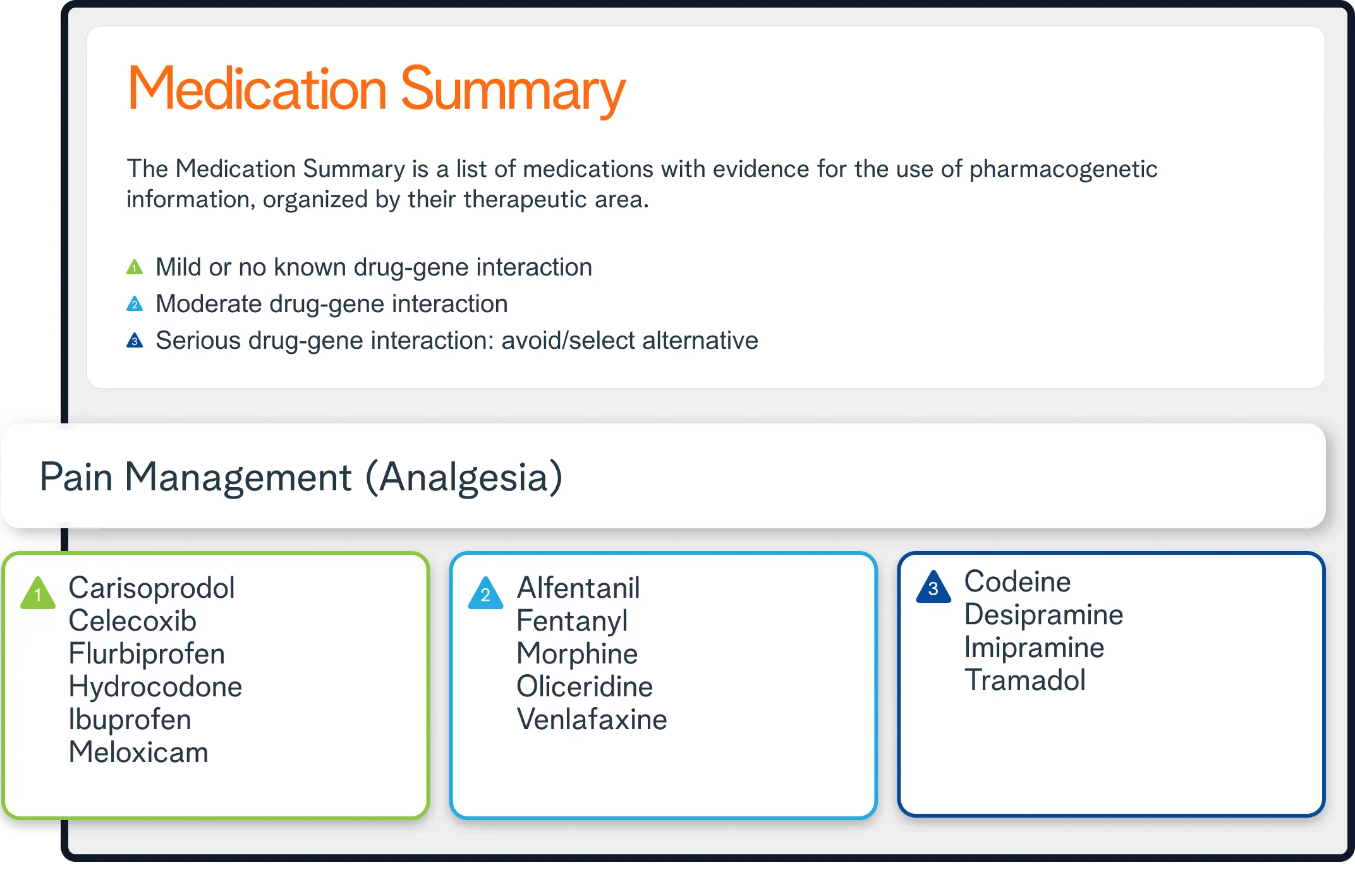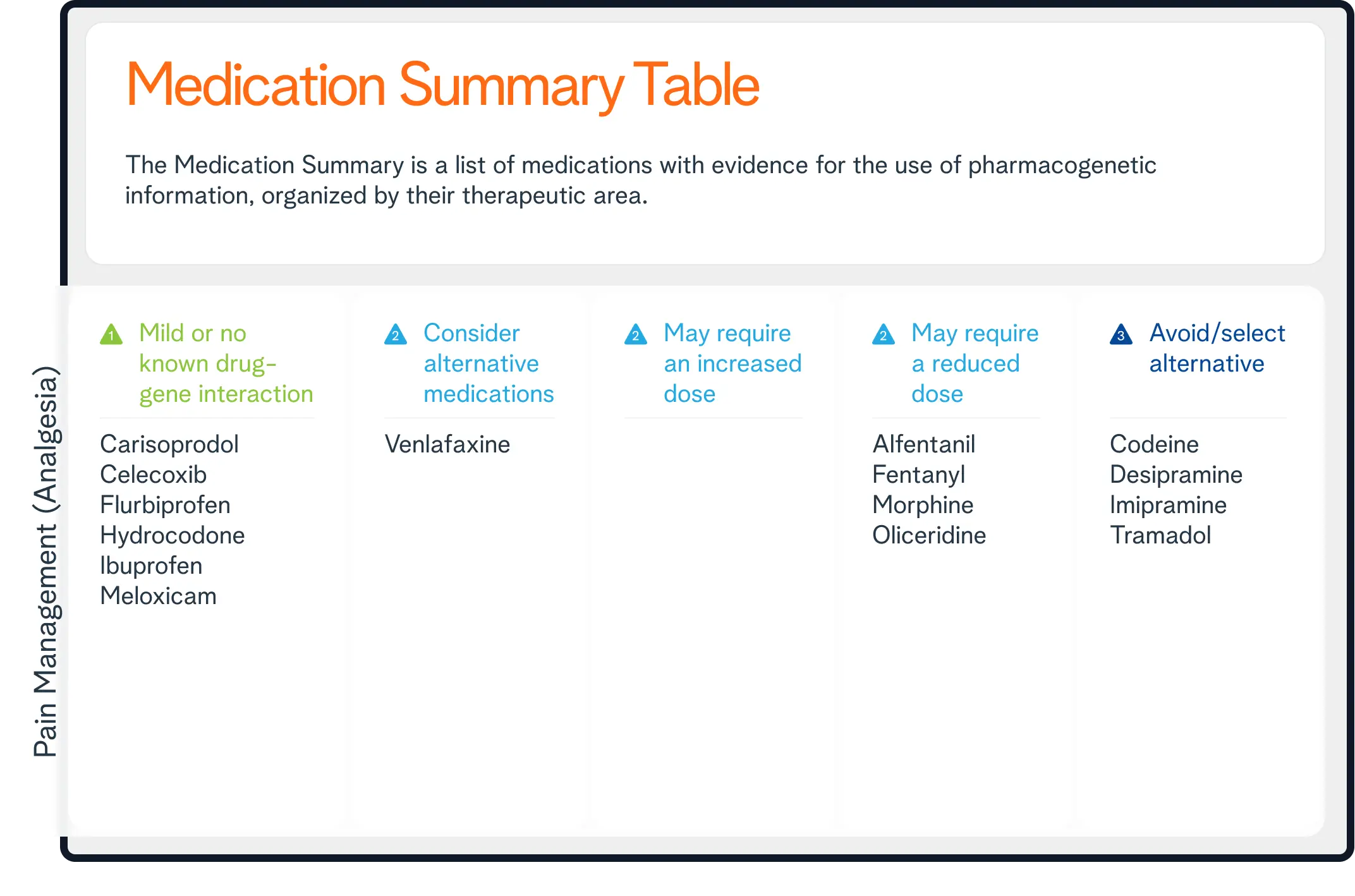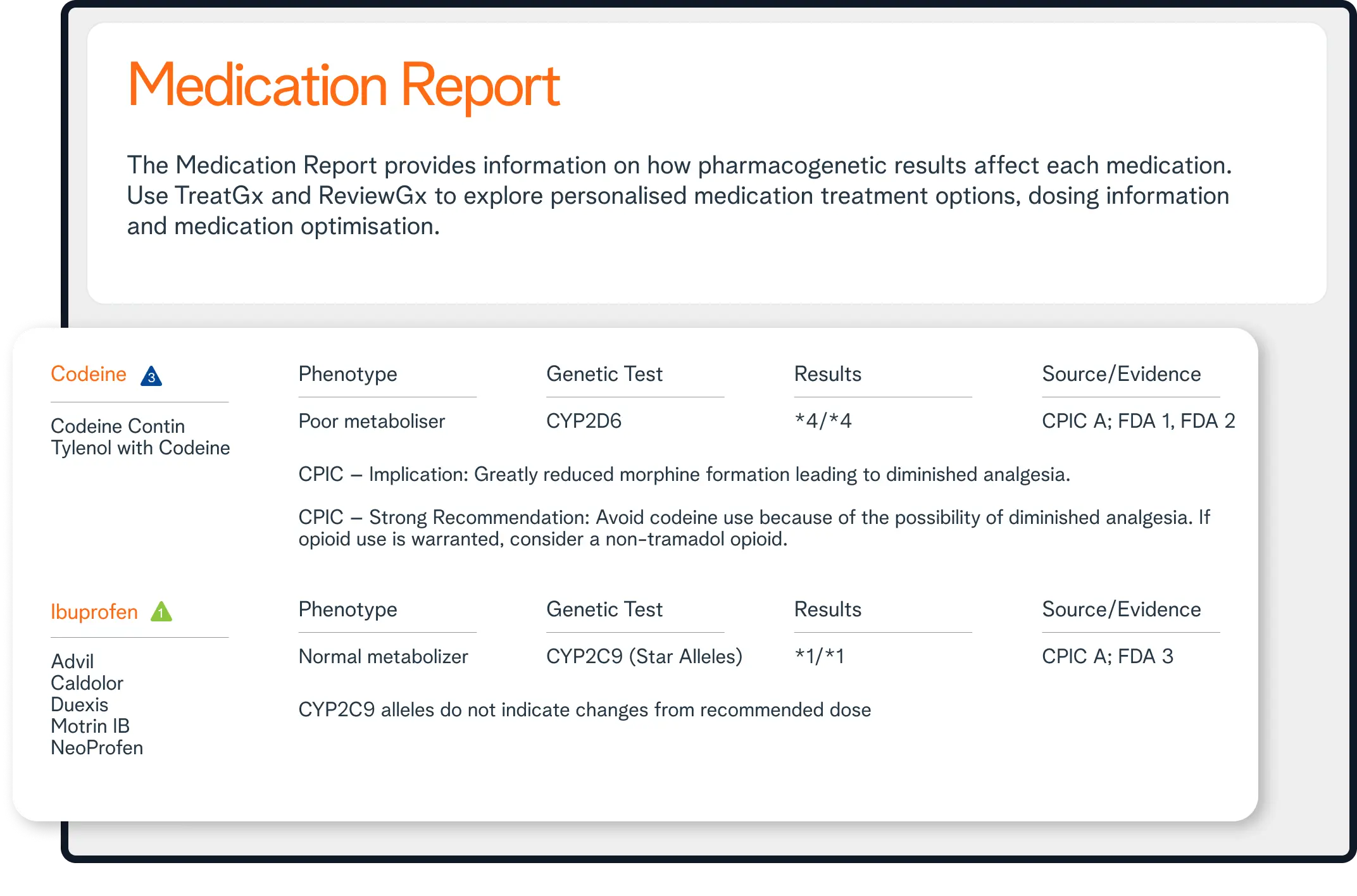Free UK shipping
Results in under 14 days
UK lab
10% Off All Tests - February 2026




PGx FOR PAIN MEDICATIONS
Genetic Test for Pain Relief
Stop guessing with pain meds. This test guides you to the most effective painkillers, from opioids to anti-inflammatories, based on how your body breaks them down.
- Pinpoint the most effective pain medications for you
- Understand the optimal dose for your metabolism
- Avoid adverse reactions from opioids, NSAIDs, and more
£300 £270.00
Free UK Shipping
How PGx Can Help Pain Management
PGx testing provides personalised insights to guide your pain management, helping you find the most effective and safest pain relief options based on your genetics.
Personalised Prescriptions:
Identify which pain relief options your body is most likely to respond to.
Reduced Side Effects:
Avoid ineffective or harsh painkillers that don’t suit your profile.
Less Pain:
Manage chronic or acute pain more effectively with PGx insights.
Better Living:
Rest easy knowing your pain plan is backed by genetics.
Save Money:
Avoid the cycle of trial-and-error with pain medications.






